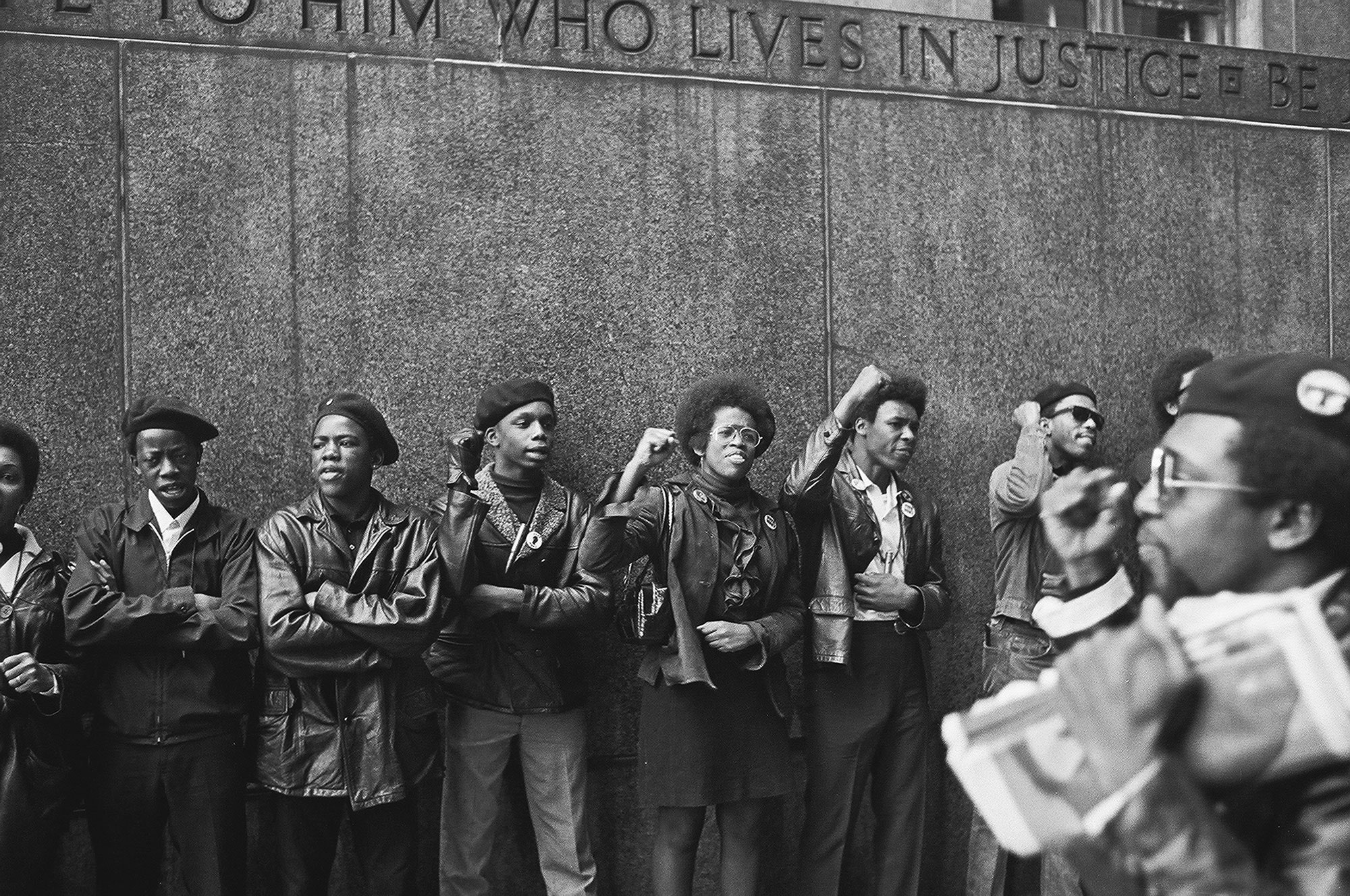Black Panther Party Founded (1966)
Sat Oct 15, 1966

Image: 1969 photograph of Black Panther Party members outside a courthouse in New York City
On this day in 1966, in the wake of spontaneous riots against police brutality, Bobby Seale and Huey Newton founded the Black Panther Party in Oakland, California.
In an interview recorded for the 1990 documentary "Eyes on the Prize II", Seale described the founding of the BPP in his own words:
"Black Panther Party, 1966, when Huey and I founded that organization, that particular year, numerous acts of police brutality had sparked a lot of spontaneous riots, something that Huey and I were against, the spontaneous riots.
Even a year earlier, in 1965, in Watts, you know, sixty-five people were killed, 200 wounded, 5,000 arrested. And Huey and I began to try to figure out how could we organize 5,000 youthful Black folks into some kind of political-electorial power movement.
Stokely Carmichael [Kwame Ture] was on the scene with Black Power. We were questioning, Huey and I, about the need for a functional definition of power and we came up with this, that 'power is the ability to define phenomena then in turn make it act in a desired manner.'
With the phenomena of racism structured in the city council at that time, Huey and I working with the North Oakland Neighborhood Service Center, the advisory board, we got 5,000 signatures for them to go to the city council, to get the city council to try to set up a police review board to deal with complaints of police brutality. Well, the city council ignored them.
So, that phenomena was that the city council was just a racist structure which could care less about the forty-eight percent Black and Chicano people who lived in the city of Oakland. So, there we are trying to figure out what to do. We finally concluded through those months that we had to start a new organization.
And we sit down and began to write out this Ten-Point Platform and Program in the North Oakland Neighborhood Service Center in North Oakland, California, in the community where Huey and I lived. And we wrote out this program.
'We want power to determine our own destiny in our own Black community', alluding to the needs to be organized-political electoral power. Full employment, decent housing, decent education that taught us about our true selves, not to have to fight in Vietnam, immediate end to police brutality and murder of back people was point number seven.
The right to have juries of our peers in the courts, what have you. We summed it up. We wanted land, bread, housing, education, clothing, justice, and peace. And, in the tail end, we stuck in two famous paragraphs: 'When in the course of human events it becomes necessary for one people to separate themself from the political bondage' - that was the emphasis, the political bondage - 'which have connected them with another, and to assume among the powers of the Earth the separate and equal station to which the laws of nature and nature's God entitled them.'
I mean, this was the kind of summarization we gave to our meaning. And we summarized that Ten-Point Platform Program, flipped a coin to see who would be chairman. I won chairman and we created the Black Panther Party."